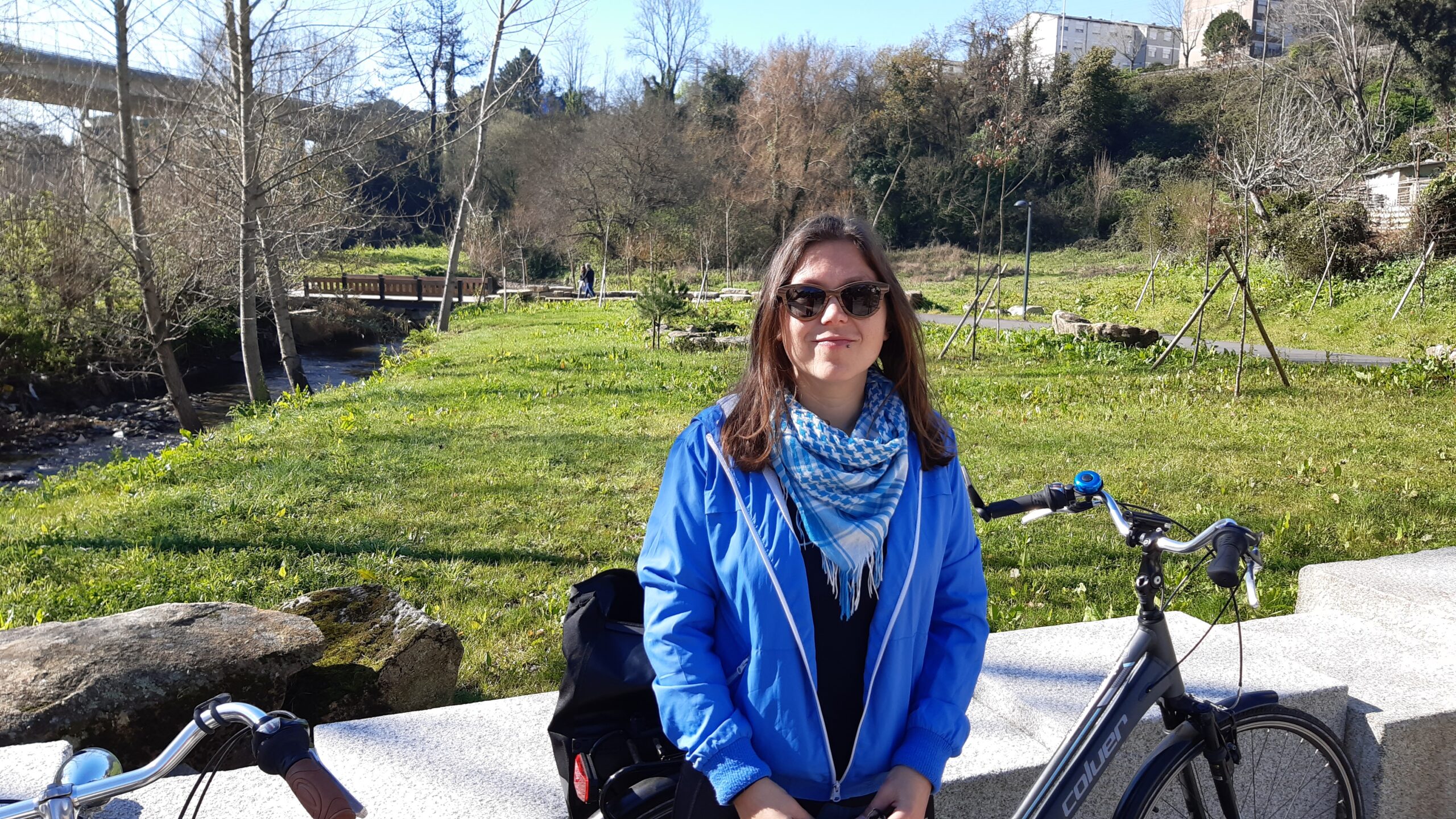My name is Vera Diogo. I am a sociologist, an educator, a cyclist commuter, a feminist, an environmentalist, vegetarian and a fan of metal and hard rock music, although not sectarian. Throughout my life, I have had and ceased opportunities to know social realities, further from my personal contexts, both in socioeconomic and cultural terms. My research and lecturing career has been mostly connected with social economy and educational organizations, with a recent focus on active mobility and its relations with social justice, civic participation and development. I value freedom and dedication. The bicycle allows us to combine those two ideas often perceived as opposites.
How would you describe your mission?
My mission is to share the passion about the added value that riding a bicycle brings to our lives, as human beings – body and mind; feeling and thought – in our connection with the space we live in. The bicycle is part of the life stories of many people in Portugal, stories of fun and happy childhood moments. My mission is to make that a reality for nowadays children and youth. The bicycle is mostly part of the daily-life of men, in Portugal. My mission is to include the bicycle in women’s experiences and to call on women to advocate for cycling.
What are the obstacles and challenges you are facing in your city?
Cultural barriers related with the perception that cycling is not a transport alternative; misconception of the benefits of cycling, hence, at the individual level, they reach way beyond physical gains, such as weight loss or increase of stamina, and at the social level, they surpass gains in public health and urban management costs; public policies and local government measures mostly focused on infrastructure and planned without consulting cyclists and cycling promotion groups in advance.
What are the next steps now that you are the Bicycle Mayor?
My work will follow the strategy of communicating and cooperating with organizations and individuals active in the following domains, in order to promote cycling among their communities:
– organizations involved in the education system, as well as with organizations that shelter children and youth, in order to promote cycling among young people;
– social economy organizations, in order to sensibilize them for the benefits of the use of cycling and the importance of creating conditions (for expl.: bike parking; promotional ads about its benefits) for workers and users to feel motivated to ride to the institution;
– municipalities, particularly the education departments, in order to promote the concept of Educating Cities which has significant articulations with the bigger picture of cycling that I am trying to share. A city where more people cycle is a city where more people have wider learning experiences and where there is more space for informal education contexts, that involve the collective appropriation of public space, to arise.
What can other cities learn from your city?
Albeit limited, the inclusion of bicycles in Porto’s mobility patterns has had visible progress in the past 10 years. There was an increase in the number and visibility of bicycle shops, bicycle collectives have remained active with a yet recent boost in the Porto Local Section of MUBi – Associação pela Mobilidade Urbana em Bicicleta, formalized in 2019. At municipal level, there have been signs of overture and in May 2020, a plan to improve cycling infrastructure in 35km was announced. Other municipalities in the Porto Metropolitan Area, such as Matosinhos, have shown some willingness, as well. The pandemic situation has proven to motivate more people to use bicycles, for utilitarian and leisure purposes.
Connect
Join us

